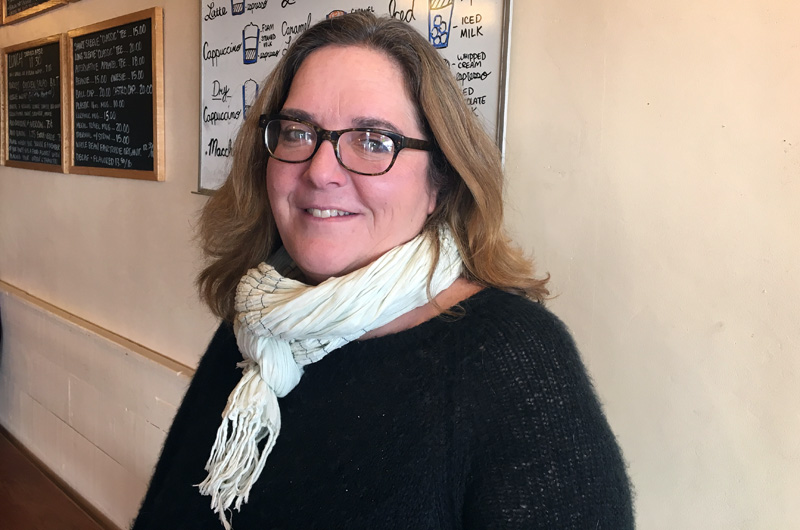The long-running campaign to reduce underage drinking on Martha’s Vineyard is showing results, but marijuana use among the Island’s high school students is markedly higher than state and national averages.
“We’re concerned about our marijuana numbers,” said Theresa Manning, co-coordinator of the Martha’s Vineyard Youth Task Force, which was founded in 2004 by Dukes County to address risky behavior by Island kids.
In a recent Youth Task Force survey of more than 800 Vineyard students in grades seven through 12, 98.2 per cent of middle-schoolers and 67.4 per cent of high-schoolers reported they did not consume alcohol in the past 30 days. And, among those who admitted using it, students said they are waiting longer before taking their first drink.
The Vineyard poll is based on a national survey administered by the Centers for Disease Control and Prevention. It is conducted on the Island by the Youth Task Force in even-numbered years at all of the Island’s public schools. The results are broken down by age group, but not by individual school results.
The age at which students first try marijuana has also increased slightly over the years, but the rate of use among students at the Vineyard’s two high schools far exceeds both state and national averages.
Asked if they had smoked marijuana at least once in the past 30 days, 33.9 per cent of Island teenagers said yes. The corresponding rate for Massachusetts is 24.5 per cent and the national rate is 21.7 per cent.
By comparison, only 32.6 per cent of Vineyard high school students reported at least one alcoholic drink in the past 30 days. That’s lower than both the Massachusetts rate of 33.9 per cent and the
national rate of 32.8 per cent, and a big improvement over the Island’s 2012 rate of 41.9 per cent.
“We’re happy to see that our alcohol numbers continue to decline,” said Ms. Manning, who with Youth Task Force co-coordinator Jamie Vanderhoop has worked for years to educate Island parents and kids about the effects of alcohol. The messages have been getting through to both groups. According to the survey conducted late last year, kids on the Vineyard fear their parents response and the risks to their own health more than they do getting caught by police for drinking.
For seventh- and eighth-graders, “negative health effects” were the top reason to avoid alcohol, followed by “getting into trouble with my parents” and “getting into trouble with the police.” High school students reported parents as the number one factor, followed by negative health effects and police.
“Kids really are listening to their parents, that’s what the survey is telling us,” Ms. Vanderhoop said. “We want to strengthen that message, and get it out to the parents.”
The Youth Task Force is emphasizing the power of parents with a new video advertisement making its debut this weekend at Edgartown Cinemas. In the ad, a mother asks her tween daughter to promise that if anyone offers her alcohol at a sleepover, she’ll politely say no. In return, the mom makes a promise of her own: “Your real friends won’t care.” The video is part of a national campaign called “Talk. They Hear You.”
“It’s really important for parents to communicate their position around substances, to have a united front and a very clear message for the kids,” Ms. Manning said.
As pot-smoking takes the place of drinking among more underage Islanders, the Youth Task Force aims to harness the same elements that have helped curb teen alcohol use, emphasizing education for both parents and children, and clear messages about what is acceptable.
When high school students in the survey were asked if they believed their parents thought it was “wrong” or “very wrong” for them to consume banned substances, marijuana was lowest on the list at 63.5 per cent. Regularly drinking alcohol got an 86 per cent disapproval rating, cigarettes 90.8 per cent and using prescription drugs without a doctor’s orders, 93.5 per cent.
Middle schoolers believed that their parents viewed cigarettes most negatively, with 92.6 per cent reporting “wrong” or “very wrong.” Prescription drugs and alcohol were tied at 90.5 per cent and marijuana was again the lowest concern at 88.7 per cent.
“What we need to do is start improving that cultural shift around marijuana,” Ms. Manning said. She and Ms. Vanderhoop cited research studies, released over the past few years, that show how marijuana affects the human brain, which does not develop completely until age 25.
“The developing brain is still making connections and when you introduce a substance while it’s making those connections, it then can start to think it needs that substance in order to function,” Ms. Vanderhoop said.
To bring the research alive, the Youth Task Force is presenting an evening with addiction specialist Ruth Potee, on March 23 at the regional high school library. A physician based in Greenfield, Dr. Potee is an engaging speaker who, in person and in online videos, uses science to dismantle the assumption that marijuana is safe and natural.
“We know that brain development can be a compelling argument for parents. We think that the science behind using marijuana and the challenges that can produce will be compelling for kids,” Ms. Manning said.






Comments (5)
Comments
Comment policy »